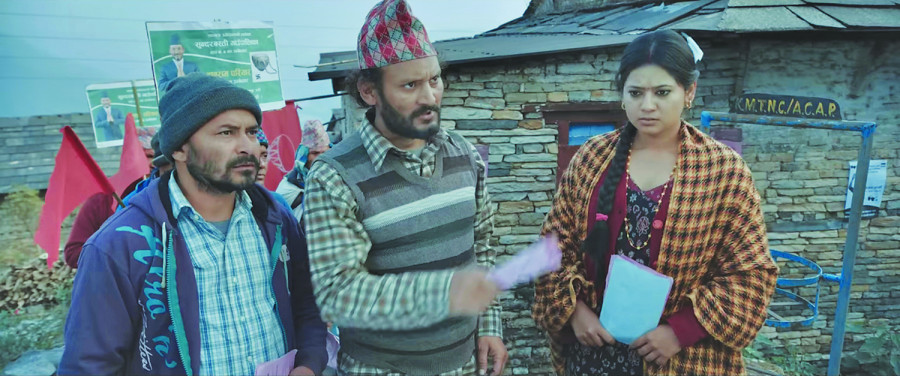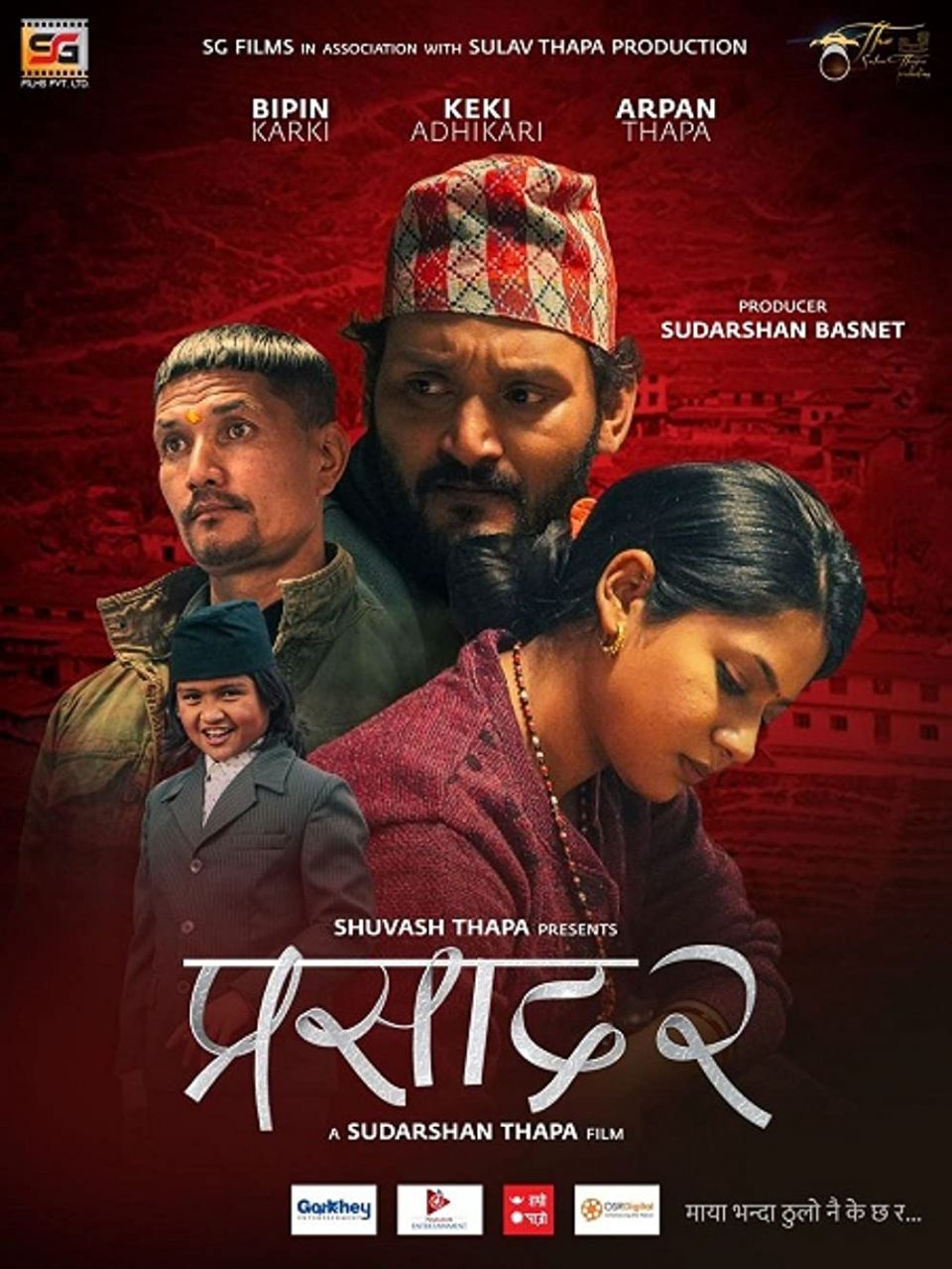
Director Sudarshan Thapa loves mythology—particularly the Mahabharat. There are references to Abhimanyu, Krishna, Kamsa, and Sakuni in his movies. In ‘Prasad 2’ his recent release, the central husband and wife duo, Narayani and Baburam, are like the Pandavs who return to the village after 12 years. As in the great Hindu epic, their peaceful time is interrupted by Ramesh (played by Arpan Thapa), who embodies the Kauravs. Some of the scenes mirror Mahabharat, such as the public humiliation of Narayani, where people question her character when they find out she was assaulted by Ramesh. This mirrors the humiliation faced by Draupadi.
One thing that is clear after watching ‘Prasad 2’ is that it’s a social drama whose plot is driven through the lens of mythology. The result is a mix of underwhelming as well as emotionally devastating scenes. The film also tries to address the big issues plaguing Nepali society. But it doesn’t fully manage to convey the intricacies of either the caste system or the abuse women face in society.
Early on, a scene features a Christian trying to convert Dalits into embracing Christianity. His argument is that the Hindu religion categorises them as lower caste and denies them entry into temples. Baburam, who is also a Dalit, explains that religion is never the culprit; it’s the people. ‘Prasad 2’ is filled with these culprits ranging from the gossipy aunties in the community tap to purely evil brothers, fathers, and priests. However, these evil characters are so caricaturish that the seriousness of the issue barely registers.
For instance, consider the village’s big shot, Kaji’s son Ajay (played by Mahesh Tripathi), who is contesting against Baburam in the election. Baburam’s election symbol is Damaha, whereas Ajay’s is black sunglasses. The point might be that Ajay, with his black sunglasses, can’t see human beings in the ‘lower caste’, but the one-note performances don’t carry the weight of this symbolism. This wouldn’t be a big problem if caste were not such a prominent theme.
To be fair, the filmmakers have tried to go into the details and intricacies of the caste system in ‘Prasad 2’. One instance of this is how two individuals from a Brahmin family are demoted to being Dalits because they marry Dalits. Even though they now live within a Dalit family, they have shown instances of internalised casteism, as in the case of Narayani, who others her husband’s family based on their caste.
The cinematographers have made excellent use of locations to tell the story. Viewers can notice how the Kaji has to climb down the steps to go to a Dalit’s house as if he’s climbing down to the ‘lower caste’. He even waits for a second or two before taking steps, wondering if someone’s seen him. But when he climbs up the stairs and reaches the road, he’s once again achieved ‘high status’ and reveals his true intentions to his daughter.
Melodramatic scenes are the movie’s high points. The village council scenes are equivalent to court dramas. This setting is used by the director as a platform to give out social messages. The characters simply act as mouthpieces. Dialogues which would have been preachy in other scenes, come across as powerful during these scenes. These moments work, but they don’t make up for the poor writing in other parts.
A big issue I have against this film is how the problems get resolved in very simple ways. The characters change their mind and heart without proper buildup. The monologue at the end by Bunu’s (a character with a type of disability) mother feels performative because she is the same mother who refuses to report Ramesh when he touches her daughter inappropriately. In between these two scenes, we barely see her. Yet by the end, she’s delivering a ‘heartfelt’ monologue. Without the build-up, these monologues feel preachy.
The random insertion of songs also drags the film’s pacing. Songs are presented as filler scenes making some of the plotlines appear more simplistic than they actually are. Movie OSTs don’t need to be tethered to reality, but they must fit into the context. It seems the filmmakers are including these songs just for the sake of it.
The character of Ramesh is something else entirely. Ramesh, a diminutive of Rameshwar, is the antithesis of his name. He doesn’t flinch before molesting a woman in a temple. With a permanent sandalwood tika between his eyebrows, a chipped tooth, and a weird buzz cut, Ramesh looks more like a cheap pervert than a cunning and evil character.
Ramesh represents the predators lurking among us; the over-friendly relative, the nosy neighbour, or the uncle who makes those uncomfortable jokes in the name of openness. It’s shown that he couldn’t digest that a girl as pretty as Narayani would marry someone like Baburam. Perhaps, the idea was to create a machiavellian mixture of Shakuni and Duryodhan, but the writing and the performance don’t entirely create the pure evil he’s meant to embody.
Despite the maker’s best intentions, ‘Prasad 2’ comes off as a contrived and convoluted film.
Prasad 2

Language: Nepali
Duration: 2 hours 14 minutes
Director: Sudarshan Thapa
Cast: Bipin Karki, Keki Adhikari, Arpan Thapa, Mahesh Tripathi
Released: April 28












